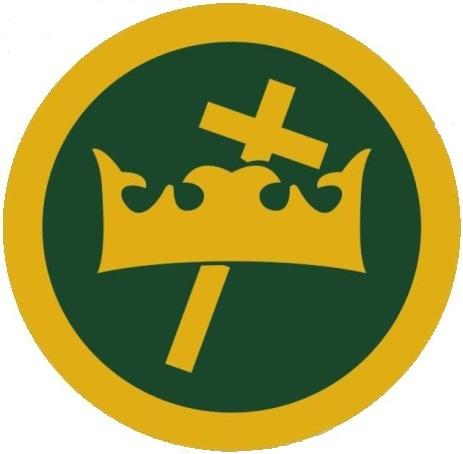News
News
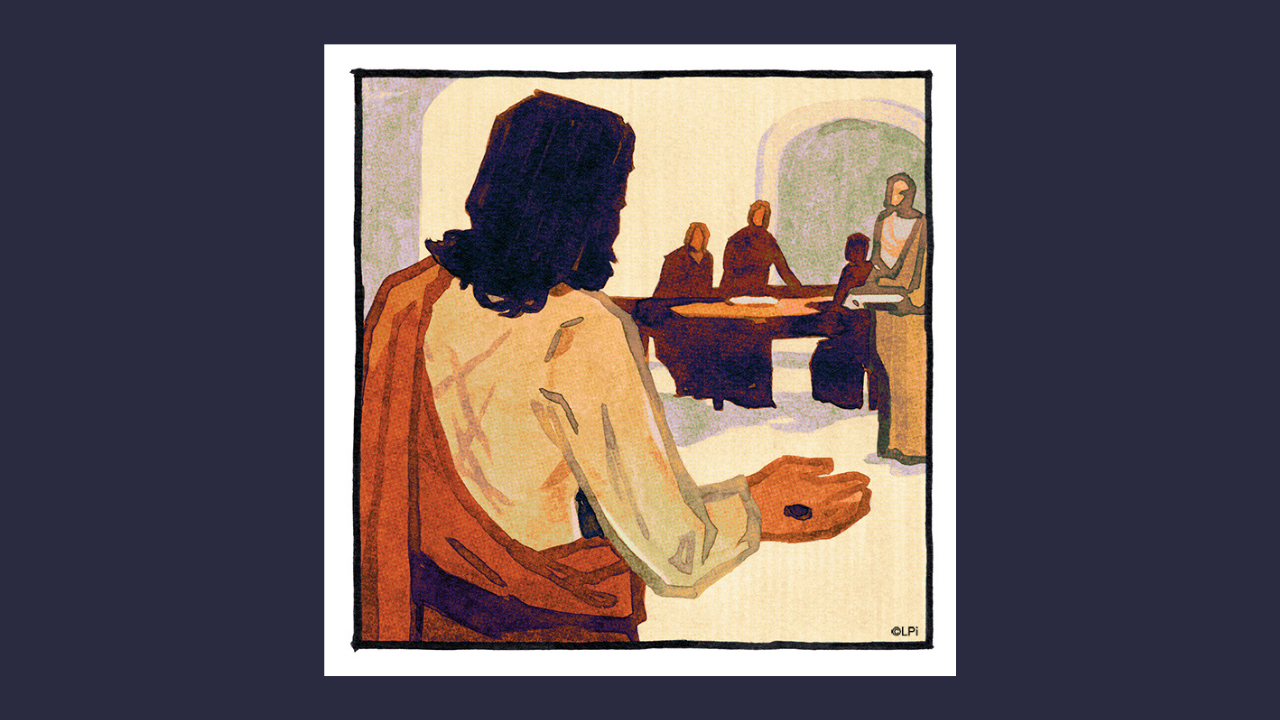
13 Apr, 2024
On Easter Sunday we heard from Mark. Last Sunday we heard from John. This Sunday we hear from Luke with another account of an encounter with the risen Lord on that first Easter Sunday. This Sunday’s Gospel begins with the two disciples who had encountered the risen Lord on the way to Emmaus recounting their experience to the other disciples. It is in the midst of their retelling, the risen Lord appears again to all present in that place. The story of the road to Emmaus involved the two disciples making a day’s journey to the town of Emmaus outside of Jerusalem. During the journey, the risen Lord joins them on the way but they fail to recognize him for who he is. After they recount for him the events of the previous days, he recounts for them how all that had taken place was necessary as foretold by the Scriptures. When they come to Emmaus, it is the end of the day yet the Lord appears to be going on further. The disciples invite him to stay with them. When they sit down to eat, the Lord breaks bread and in that moment they recognize him for who he is, he vanishes, and they then race back to Jerusalem to tell the other disciples. Today’s Gospel takes up at this point. Luke recounts for us many of the same details in this appearance that are also recounted by the other Gospel writers: that the disciples were fearful, unbelieving, and that the Lord explained for them, again, all that the Scriptures foretold about him. This Sunday’s Gospel, as well as the story of Emmaus, gives us some important take-aways. First, both with the disciples journeying to Emmaus or those locked away in the upper room, the Lord draws near to them. He comes to them where they are: in their disbelief, their grief, and their suffering. Just because they do not recognize him does not mean that he is any less present to them. The same is true for us. Just because we do not recognize God’s presence among us does not mean that he is not in our midst. Second, Jesus does not just appear to the disciples and say “here I am so just believe.” No, he takes the time to openly lead them once again through the Scriptures that pointed to his death and resurrection. Like the disciples, Jesus helps us to put the pieces of life together, to bring clarity to the mysteries that surround us. This is why a living faith, a real relationship with Christ is vital. Jesus helps us to make sense out of the world we live in or to at least at times see things from the perspective of “I don’t get it, but I trust in you, Lord.” Third, he again commissions his disciples to be his witnesses because of what they have experienced and have come to know; it is the same for us. Again, our lives need to be a witness to the risen Lord and the difference that he makes in our lives; our lives also need to be an invitation to others to greater life in the Lord. The Resurrection is not the end of the story, but the beginning of a new chapter that calls us to mission with the help of the Holy Spirit. In the appearance following the Resurrection, the Lord makes it clear that he is counting on us to be his witnesses to the world. May we have the grace to experience the love of the risen Lord in such a way that we are not able to keep the joy of the experience to ourselves. Blessings to you and yours for the week ahead! Father Chris House
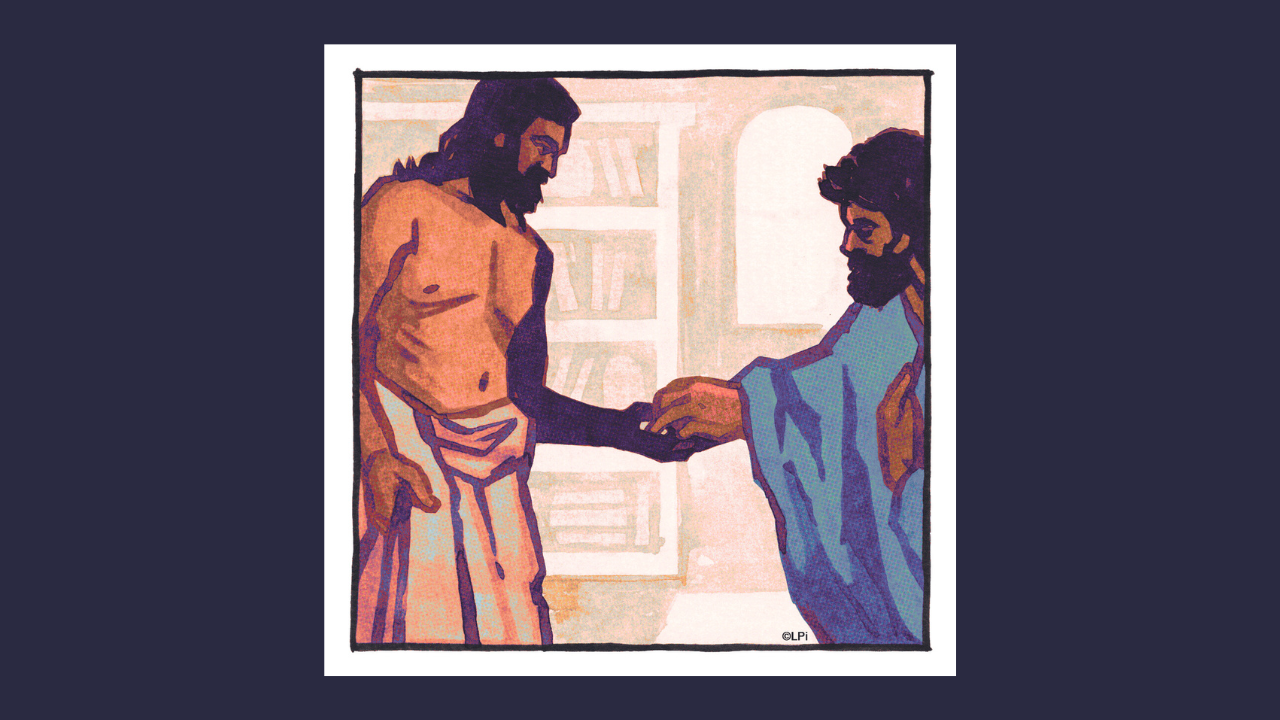
06 Apr, 2024
This Sunday concludes the Octave of Easter. An octave is a celebration of eight days in the Church and each day is honored liturgically in the same way as the day in which the octave began, in this case Easter Sunday. With the liturgical reforms of the late 60’s and early 70’s, only two octaves remain in the ordinary form of the Church’s liturgical calendar: the octaves of Easter and Christmas. While the octave may be finishing, the joy of the Easter Season continues on. I wish to thank all those who helped with our liturgical celebration of the Easter Triduum. The Gospel for this weekend, the Second Sunday of Easter, is popularly known as the Gospel of Doubting Thomas. Here our Lord appears to Thomas, and the other ten Apostles, and invites Thomas to see and probe his wounds so that Thomas might believe that the Lord is truly risen and that he is who he says he is. While the Lord’s body has been changed and glorified, the wounds from his crucifixion remain. Theologians have marveled over this reality for 2,000 years and posed various reasons as to why. As in the case of St. Thomas the Apostle, the wounds identify the Lord for who he is and they also tell us what death is not; death is no longer an eternal reality for those who live and die in God’s friendship. The marks of the Lord’s death remain, but death has no power over him, and through him neither over us. St. Leo the great says it more eloquently in a homily on the Lord’s Passion: He did away with the everlasting character of death so as to make death a thing of time, not of eternity . As we continue our journey through this Easter Season, let us turn to the risen Lord to draw newness of life from him, remembering that the wounds and the scars of our present lives, painful as they may be, are only things of the here and now; in the Resurrection on the last day, when Christ makes us new, those things will be no more. Triduum and Easter Masses – Thank you! I am immensely grateful to all those who helped to make our Masses for Triduum and Easter Sunday so beautiful. Many thanks to our choir members and musicians, to our environment team, to our readers, extraordinary ministers of Holy Communion, ushers, servers (who did very well with a unique set of rituals), and to all who came to worship. I hope that our Lord was pleased with the worship that we offered to Him during those most sacred days. I also want to offer a special welcome to our seven neophytes in our parish school who were fully initiated into the Church at the Easter Vigil through the sacraments of Baptism, Confirmation, and Holy Communion. Let us continue to pray for them as the Lord enfolds them with grace and presence in their lives. Thank you also to Deacon Scott and those who helped to prepare them for their initiation. Divine Mercy Sunday Devotions This Sunday, April 7 th , is Divine Mercy Sunday. As in years past, the Cathedral is hosting the culmination of the Divine Mercy Novena with the Chaplet of Divine Mercy, opportunity for Confessions, and Eucharistic exposition from 2PM to 3PM. All are welcome! Easter Wisdom We do not pretend that life is all beauty. We are aware of darkness and sin, of poverty and pain. But we know Jesus has conquered sin and passed through his own pain to the glory of the Resurrection. And we live in the light of his Paschal Mystery - the mystery of his Death and Resurrection. “We are an Easter People and Alleluia is our song!” - Pope St. John Paul II during his Apostolic Visit to Australia – November 30, 1986. Blessings of Easter joy & peace to you and yours for the week ahead! Father Chris House
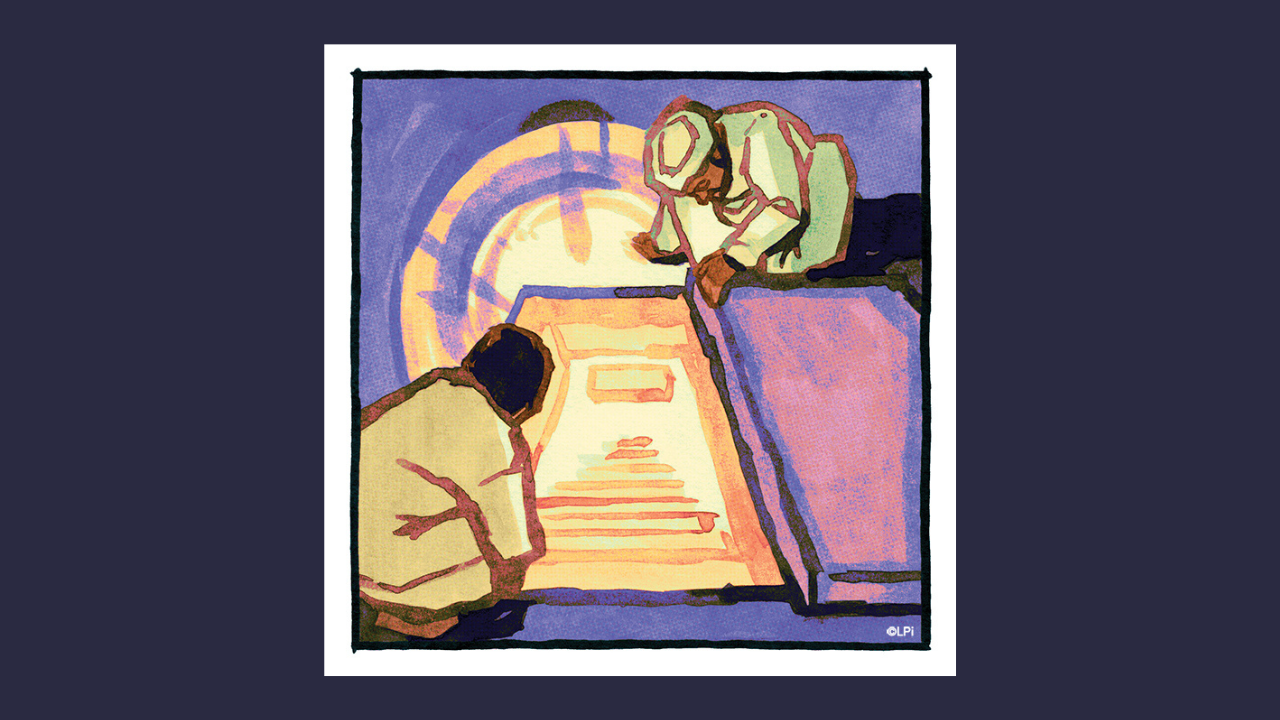
30 Mar, 2024
The Gospel this Easter Sunday from Mark begins with Mary Magdalene, Mary the mother of James, and Salome going to the tomb where Jesus was laid. They were carrying spices to anoint his body, showing their love and devotion even after his death. However, upon reaching the tomb, they were greeted by an unexpected sight – the stone had been rolled away. Imagine the mixture of fear and wonder that must have filled their hearts at that moment. The angel in the tomb reassured them, saying, "Do not be amazed! You seek Jesus of Nazareth, the crucified. He has been raised; he is not here (Mark 16: 6)." These words changed everything. The Resurrection of Jesus is the cornerstone of our Christian faith. It is the ultimate victory of light over darkness, life over death, and love over sin. Through his Resurrection, Jesus conquered death and opened the gates of heaven for all who believe in him. As we begin our celebration of the Easter season, let us reflect on the significance of the Resurrection in our own lives. It is a reminder that no matter how dark our circumstances may seem, God's light can shine through. It is a call to renew our faith and trust in God's promises, knowing that he is always with us, even in the midst of trials. Just as the angel told the women to go and tell the disciples about Jesus' Resurrection, we too are called to be witnesses of the Good News. Let us share the joy of Easter with others, inviting them to experience the transforming power of Christ's love. On behalf of Father Wayne, Deacon Scott, and the parish & school staff, I pray that the Lord will bless you and yours this Easter with the fullness of his grace and the joy that comes from him alone. With every cross may you remember that it is not the end. In moments of sacrifice and desolation, may you know that you are not alone or forsaken. May you always be mindful that Easter teaches us that God gets the last word, and in moments of the cross and the tomb, his last word is life. All honor, praise, and glory to the risen Christ, who, by his death and resurrection, has gained for us the rewards of everlasting life! Happy Easter! So, where did the Easter Bunny come from? It was once believed that rabbits did not sleep because they seem to be seen both day and night. Today we understand that rabbits are crepuscular , meaning that they are most active at dawn and dusk. Because of this, a rabbit was many times included in early art depicting the Resurrection because it was assumed that a rabbit was in the garden and a witness to the Resurrection of the Lord Jesus; that rabbit was given the honor of becoming the Easter Bunny, tasked with bringing treats to boys and girls to celebrate the joy of the Resurrection. Easter Blessings to you and yours for the week ahead! Father Chris House
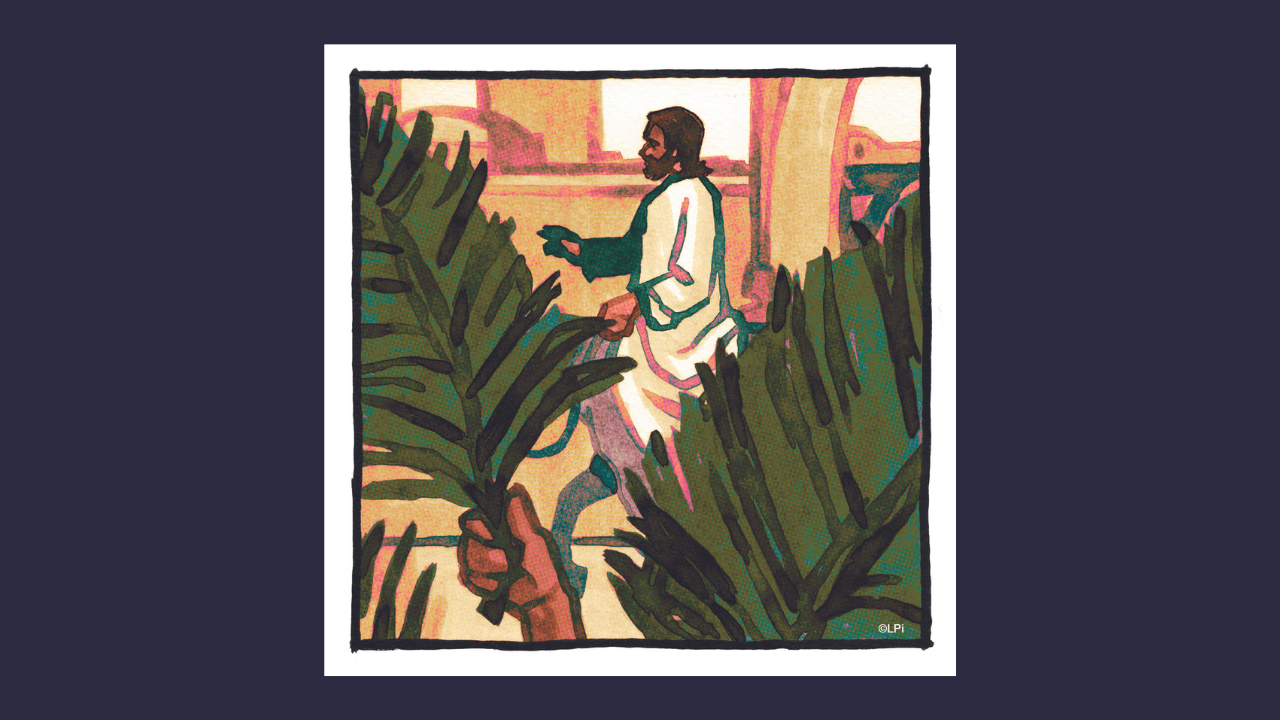
23 Mar, 2024
We are presented this Palm Sunday with the Passion according to Mark (14:1-15:47); this is believed to be the oldest of the Passion narratives and also the oldest part of Mark’s Gospel. The Passion begins with the ominous scene of the chief priests and scribes plotting to arrest Jesus and put Him to death. They feared His teachings, His authority, and His growing influence among the people. Meanwhile, Jesus, fully aware of what lay ahead, prepares for the Passover meal with His disciples, instituting the Eucharist for the Church as a perpetual memorial of His sacrifice. As we accompany Jesus through His agony in the garden of Gethsemane, we witness His profound human struggle. He prays to the Father, "Abba, Father, all things are possible to you. Take this cup away from me, but not what I will but what you will (Mark 14:36).” We see that Jesus’s human nature is very real in his vulnerability and pain while submitting to the will of the Father with unwavering obedience and love. The betrayal by Judas, the denial by Peter, and the abandonment by the disciples underscore the harsh reality of human frailty and sin. Yet, amidst these betrayals, Jesus demonstrates forgiveness and mercy, exemplifying His message of love and reconciliation. The subsequent trials before the Sanhedrin and Pilate highlight the injustice and cruelty that Jesus endured. He is mocked, scourged, and crowned with thorns, bearing the weight of our sins upon His shoulders. Despite the agony and humiliation, Jesus remains steadfast in His mission, never wavering in His commitment to fulfill the Father's plan of redemption. The pinnacle of Jesus' sacrifice unfolds as He is nailed to the cross at Golgotha. In His final moments, He cries out, "My God, my God, why have you forsaken me? (Mark 15:34),” echoing the depths of His suffering and the profound mystery of His union with humanity's pain and brokenness. The Father has not abandoned Jesus, but just as sin separates us from God, so Jesus felt the pain that comes from such separation when He took on himself the sin of the entire human race. We know the story does not end at the cross. The ultimate victory comes with Jesus' resurrection, affirming His triumph over sin and death. Through His sacrifice, we are offered the gift of salvation and the promise of eternal life. As we reflect on this Gospel passage and enter into Holy Week, let us remember that Jesus' sacrifice was not just an event in history but a living reality that is meant to continually transform our lives if we allow it to do so. We are called to deny ourselves, take up our crosses, and follow Him with unwavering faith and love. May the Passion, Death, and Resurrection of Jesus Christ be our strength, our hope, and our salvation. Schedule for Holy Week and Easter Monday : Mass at 7AM; confessions heard from 6:30AM to 6:50AM. Tuesday : Mass at 7AM; confessions heard from 6:30AM to 6:50AM; Chrism Mass at the Cathedral at 6:30PM. Wednesday : Mass at 7AM; confessions heard from 6:30AM to 6:50AM; School Mass at 8:30AM; Exposition of the Blessed Sacrament from 12:30PM to 5PM, ending with Benediction; confessions heard from 4:15PM to 4:45PM; Living Stations of the Cross presented by CTK school students at 6:00PM. Holy Thursday : Evening Mass of the Lord’s Supper at 5:30PM followed by adoration in Roesch Hall until 10:00PM; there is no morning Mass on Holy Thursday. Good Friday : Stations of the Cross at 12:05PM; confessions heard from 4:00PM to 5:00PM; Celebration of the Lord’s Passion at 5:30PM; there is no morning Mass on Good Friday. Holy Saturday : Easter Vigil in the Holy Night of Easter at 8:00PM; there are no confessions heard on Holy Saturday and there is no 4:30PM Mass. Easter Sunday : Masses at 8:00AM and 10:00AM; there are no afternoon confessions heard and there is no 5:00PM Mass. Blessings to you and yours for a grace-filled Holy Week! Father Chris House
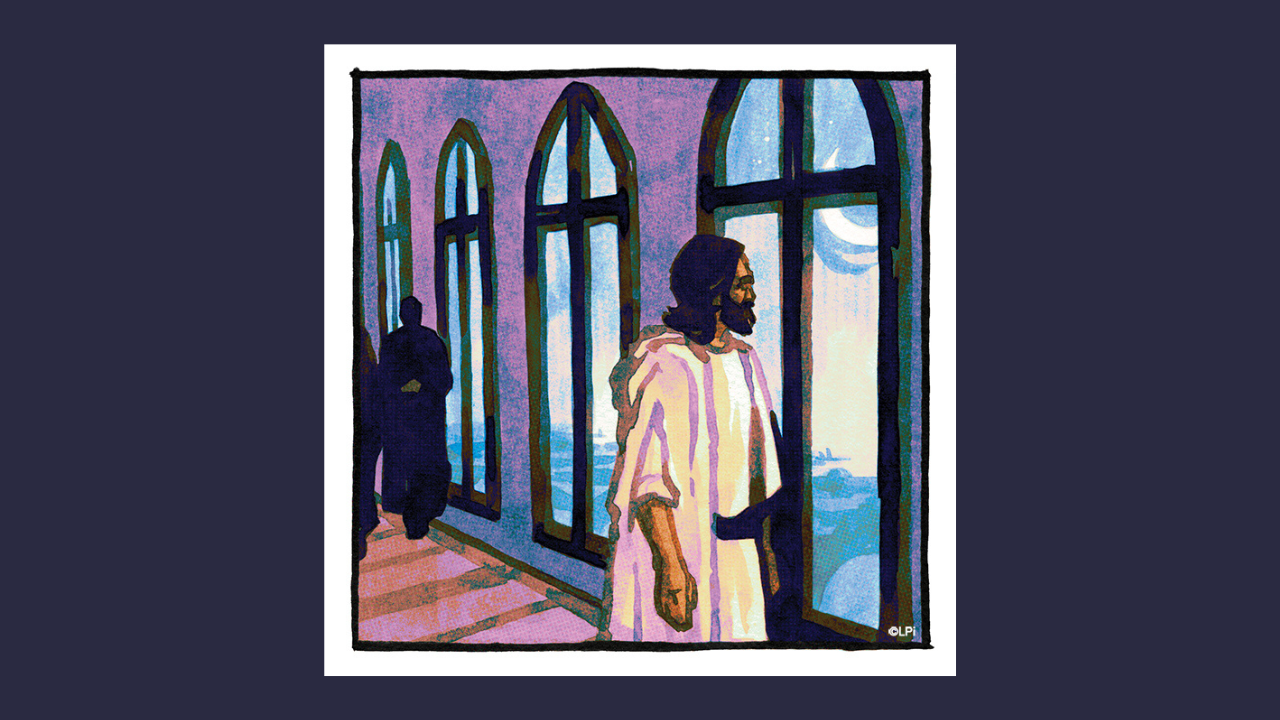
15 Mar, 2024
This Sunday marks a turn in our Lenten journey; with the coming of the Fifth Sunday of Lent we now enter into the second part of this penitential season known as Passiontide. Following this Sunday, this time is marked by our use of the custom of veiling images in the Church, which not only mark a liturgical shift but also invites us to sharpen our focus. The custom comes from the Gospel reading from John which was always read on the Fifth Sunday of Lent, before the reform of the Lectionary, where Jesus hid himself from the crowds while in Jerusalem. This Sunday’s Gospel reading from John invites us to reflect on the profound sacrifice that Jesus willingly embraced for the salvation of the human race. In this passage, Jesus speaks openly about his impending death and what it will accomplish. Some Greeks approach Philip, expressing their desire to see Jesus. This exchange points to the universality of Jesus' mission. It's not just for the Jews but for all people, regardless of their background or nationality. Jesus responds with words that echo throughout history: "The hour has come for the Son of Man to be glorified." What does Jesus mean by "being glorified"? It's not about worldly power or fame but about the ultimate act of love and sacrifice. Jesus compares his upcoming death to a grain of wheat falling to the ground and dying, producing much fruit. In this analogy, Jesus reveals the paradox of the Christian faith: through death comes life. Jesus acknowledges the anguish he feels about his impending suffering, but he also submits to God's will. He knows that his death is not an end but a beginning—a new birth for humanity. His sacrifice will reconcile humanity with God and bring eternal life to all who believe in him. As we continue our journey through the season of Lent, we are called to reflect on the significance of Jesus' sacrifice in our own lives. We are invited to embrace the cross, not as a symbol of suffering alone but as a sign of hope and redemption. Just as Jesus surrendered himself to the Father's will, we are called to surrender our lives to God, trusting in his plan for us. In the midst of our own trials and tribulations, let us remember the words of Jesus: "Whoever serves me must follow me, and where I am, there also will my servant be." Let us walk with the Lord, bearing our crosses with courage and humility, knowing that through our own sacrifices, we participate in the redemptive work of Christ. Make Plans for Holy Week As we prepare to enter Holy Week with next Sunday’s celebration of Palm Sunday, I want to invite you to prayerfully consider participating in all of the celebrations of Holy Week. The celebration of Easter (Masses at 8:00AM and 10:00AM; there will be not be a 5:00PM Mass on Easter) has a completely different feel when it is preceded by the celebrations of Holy Thursday (5:30PM) and Good Friday (5:30PM). If you have never been to the Easter Vigil on Holy Saturday (8:00PM), please consider doing so. This year’s vigil will be a first for me as we have seven children from our school who will be fully initiated into the Church. On Tuesday of Holy Week, at 6:30PM, Bishop Paprocki will celebrate the Chrism Mass at the Cathedral where the Holy Oils will be blessed and consecrated for the year and when the priests of the diocese will renew their priestly commitment. This is another beautiful Mass that I invite you to consider attending. Weekday Mass will be at 7:00AM on Monday thru Wednesday; there are no morning Masses on Holy Thursday or Good Friday. Confessions will be heard at their normal times on Monday thru Wednesday. Confessions will also be heard on Good Friday from 4:00PM to 5:00PM. Finally, the Wednesday evening Stations of the Cross during Holy Week will be “living Stations” offered by our grade school students. The Stations that evening will be at 6:00PM. All are welcome! Blessings to you and yours for the week ahead! Father Chris House
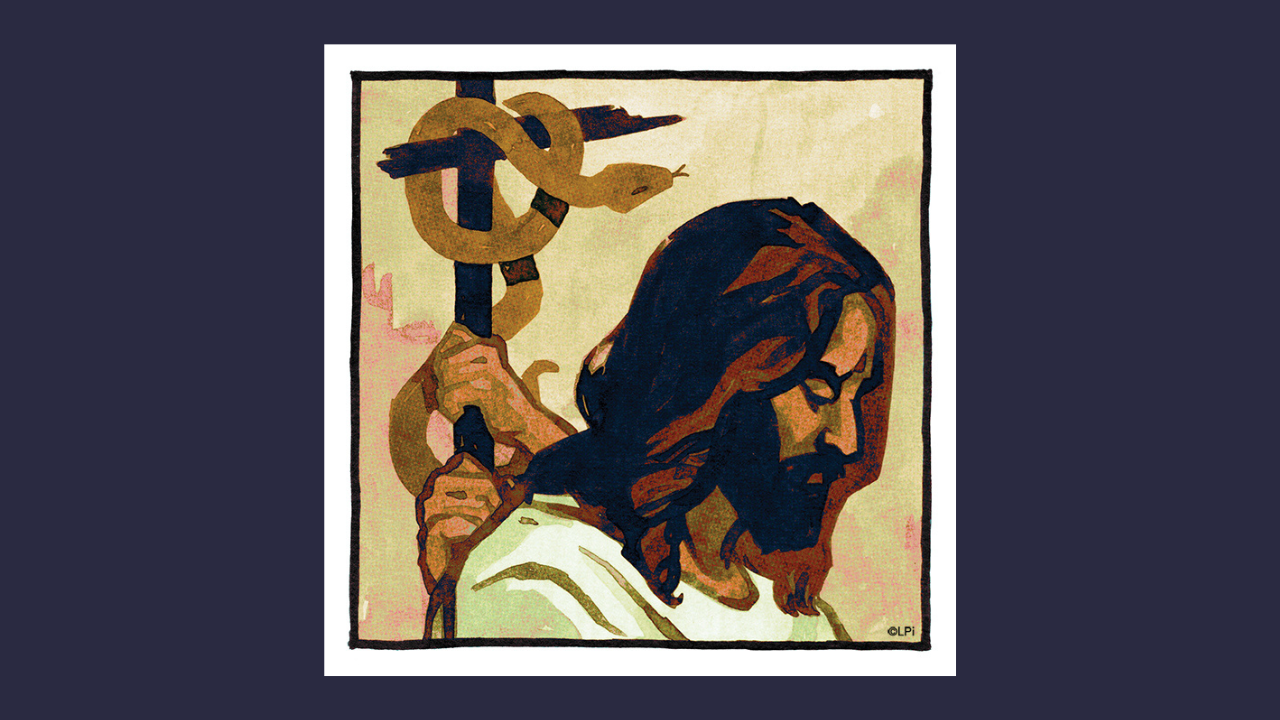
08 Mar, 2024
Look and Live Growing up, when watching a sporting event on television, it was not at all uncommon to see someone in the stands holding a sign that read “John 3:16.” The words of John 3:16 are given to us this Fourth Sunday of Lent, Laetare Sunday. John is recounting a conversation between Jesus and Nicodemus. Nicodemus is a Pharisee and a respected member of the Sanhedrin. Later in John’s Gospel, Nicodemus will caution the elders not to rush to a hasty judgement concerning Jesus and his ministry without attempting to understand his words and actions. Before Jesus expresses to Nicodemus the words that we have come to know from John 3:16, he centers the conversation on the impending mystery of the Cross. Jesus refers to an event concerning Moses and the Israelites that is recounted in the Book of Numbers. The people grumbled against God, so God sent poisonous seraph serpents into their camp causing many to die. Moses interceded on behalf of the people and God, in response, commanded Moses to fashion a bronze serpent and to erect it on a pole and anyone who looked at it would be healed of the poison of the serpents. This lifting up of the bronze serpent prefigures the lifting up of Jesus on the Cross so that whoever looks upon Jesus in faith will be saved from the poison of the original serpent given through the bite of the sin. This brings us to one of the most well-known phrases in all of the Scriptures: For God so loved the world that he gave his only Son, so that everyone who believes in him might not perish but might have eternal life. The concept of “the world” in the Gospels is many times equated with darkness and opposition to God, but we hear in this discourse from Jesus that, even though the world is covered in darkness and steeped in sin, God still loves the world. In the mystery of the Cross and Christ crucified we see God’s ultimate judgment on the world: not condemnation and wrath but love and mercy. We must remember that this love and mercy are not irresistible. We must have hearts and lives that are open to receiving these gifts of God’s goodness. Jesus is the light that has come into the world and we must not be afraid to approach him. The light that he gives exposes our sinfulness, but only so that we might confess it and choose his love and forgiveness as a remedy for it. Sadly, there are many people who cannot bear the light, who are unwilling to acknowledge their own sinfulness and their need for a savior. They prefer to remain in the darkness with a false sense of fulfillment and happiness, neither of which can truly exist apart from a real and lasting relationship with God. This Fourth Sunday of Lent is known as Laetare Sunday, a Latin command meaning rejoice ! We are called to rejoice because our Lenten journey is now more than half over and the joy of Easter fast approaches. We are called to rejoice in the depth of God’s love for us which is fully revealed through the Passion, Death, and Resurrection of Jesus which we will soon commemorate. As we continue our Lenten journey, let us be mindful of why we are fasting, praying, and giving alms. All of these practices should be responses of a heart that is grateful to God for the mercy that he has shown to us and marks of a desire for continued conversion. Let us look upon Christ crucified with eyes of faith and hearts open to his saving grace. As with Moses and the seraph staff of old, so now with our crucified Lord: look with faith and live. Lenten Wisdom “Lenten practices of giving up pleasures are a good reminder that the purpose of life is not pleasure. The purpose of life is to attain a perfect life, all truth and undying ecstatic love—which is the definition of God. In pursuing that happiness, we find happiness." – Venerable Fulton Sheen "We must trust in the mighty power of God's mercy. We are all sinners, but His grace transforms us and makes us new." - Pope Benedict XVI Blessings to you and yours for the week ahead! Father Chris House
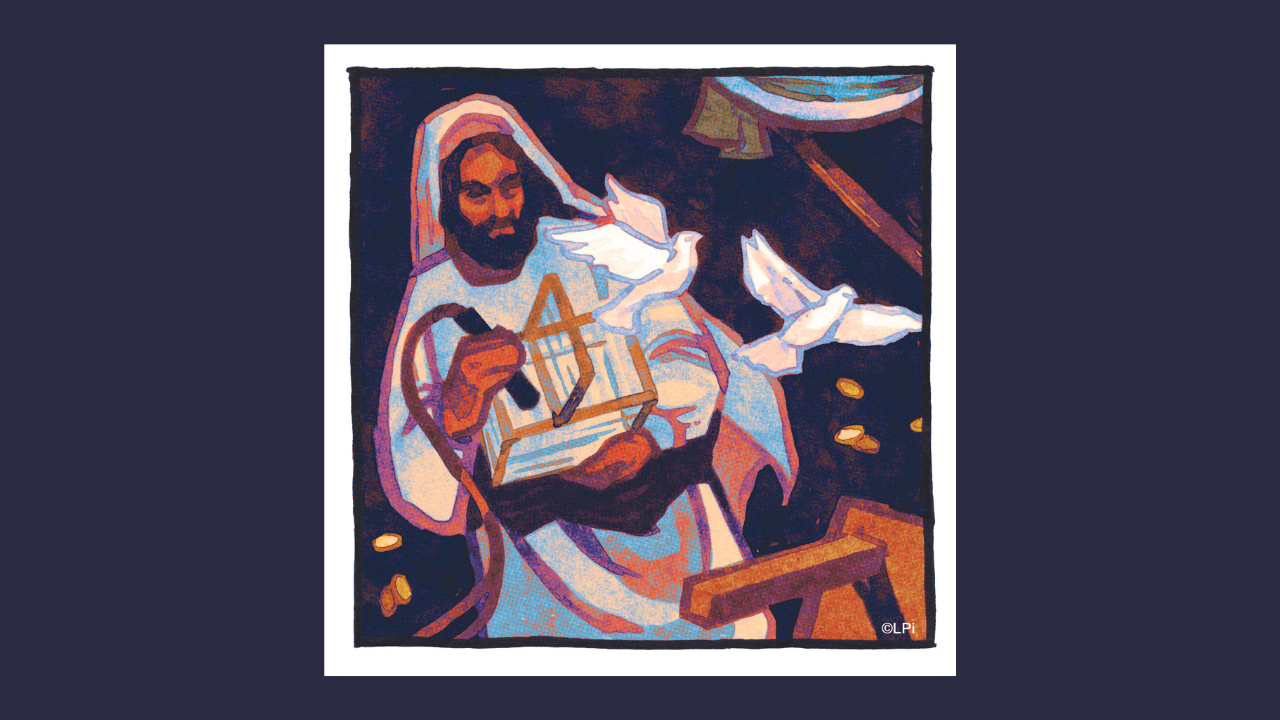
01 Mar, 2024
Imagine the scene of today’s Gospel. Jesus and his disciples are in Jerusalem for the celebration of Passover. Scholars tell us that the Lord and his disciples could have been a part of a crowd of up to 250,000 pilgrims who had made their way to the Temple. The Temple was the heart of Judaism. It was the epicenter of all things holy as it was God’s dwelling place among the human race. The Temple was quite different from what we are used to in our churches. Far from peace and quiet, groups of worshipers were loud and the Temple was not just filled with pilgrims but also money changers and sheep, oxen, and doves, and those who sold them; all of these things necessary for ritual sacrifice, which was the heart of Temple worship. Commotion in the Temple was normal but the commotion becomes pandemonium when this Galilean preacher is unleashed. Jesus entered the Temple and found that the merchants, who had a legitimate place in the Temple precincts, had begun to encroach into sacred space along with the money changers. The money changers were there because one could not pay the temple tax using foreign or secular coins which had graven images on them and thus were considered unclean. The money changers charged high service fees that amounted to extortion. The law allowed them to make an honest living providing this service but the fees had become anything but honest. This was mirrored by those who sold animals for ritual sacrifice. Since animals to be offered for sacrifice had to be pure and free of blemish, they were subject to inspections by the Levites, but many failed to pass inspection, which meant that most pilgrims found themselves having to use the Temple merchants. As with the money changers, those who chose or were forced to use these merchants paid prices that were exorbitant compared to normal prices for the same animals outside of the Temple. In a rather unique scene, John tells us that Jesus fashions a whip out of cords and drives the money changers and merchants out of the Temple, overturning their tables in the process. Simply put, Jesus is driving out what does not belong. Of course, those whom he pushed out were not pleased. The merchants’ area was known as “the booths of Caiaphas” because, while his family had a monopoly on the office of High Priest, Caiaphas also had a business interest in the Temple trade. Some scholars assert that this was the breaking point for Caiaphas with Jesus; in hitting Caiaphas’s pocketbook, this Galilean preacher had to go. Through Baptism, each of us were made into temples of the Holy Spirit. God chooses to make his dwelling within each of us, body and soul. At the same time, we know that we deal with a fallen nature and the reality of sin in our lives. This Gospel invites us to examine the temples of our lives and make sure that nothing has crept in that does not belong; if it has, we need to push it out. Sin and sinful behaviors are invasive realities that do not like to be pushed out. When we seek to purify our lives we can bet that sin will push back but the Lord is there with his grace, ready to help us with the purge. Jesus tells the crowds at the end of this Gospel passage “destroy this temple and in three days I will raise it up.” Of course, the Lord is speaking of his future Resurrection, but this is for us and our lives too; Jesus Christ will make us new if we seek his grace and open our hearts and lives to his power. May the Lenten season help us to open our hearts to him who seeks to come in and cleanse the temples of our lives. Lenten Wisdom "God never tires of forgiving us; we are the ones who tire of seeking his mercy." – Pope Francis "Lent is a time of going very deeply into ourselves... What is it that stands between us and God? Between us and our brothers and sisters? Between us and life, the life of the Spirit? Whatever it is, let us relentlessly tear it out, without a moment's hesitation." - Catherine Doherty Blessings to you and yours for the week ahead! Father Chris House
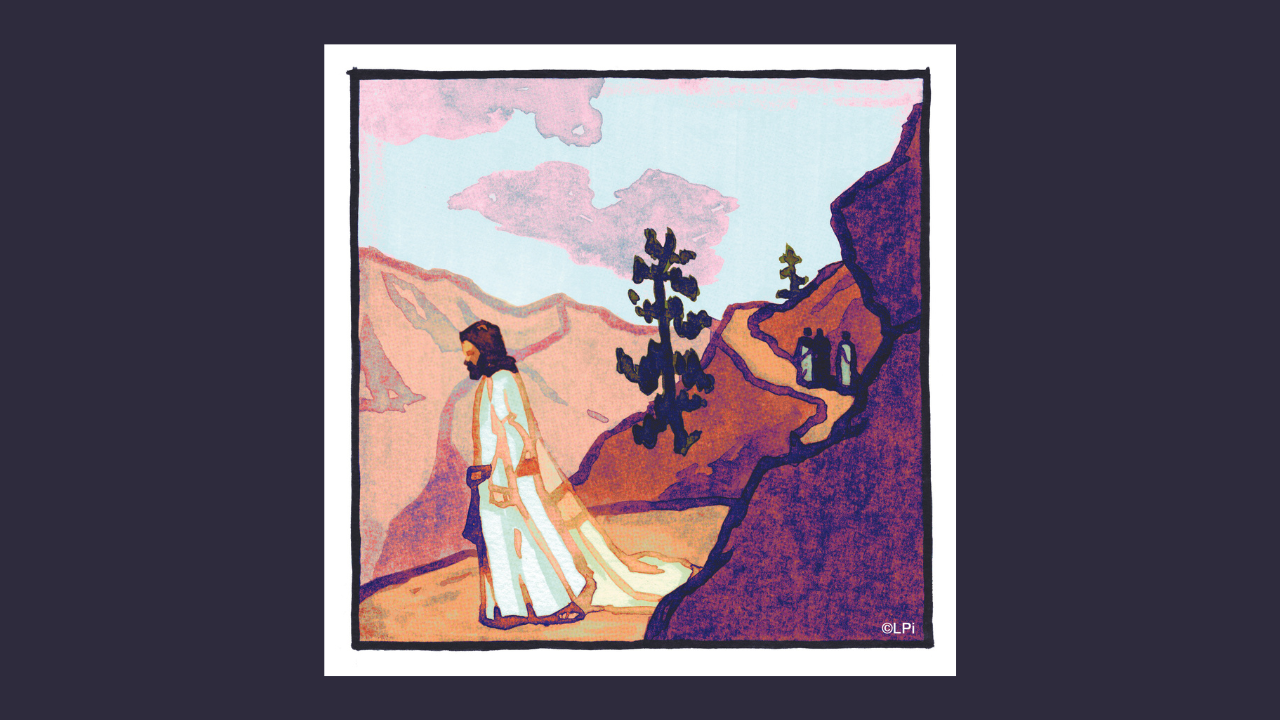
23 Feb, 2024
Some people have books that they read multiple times or that they come back to in different seasons of life. This Lent has brought me back to The Cost of Discipleship by Dietrich Bonhoeffer. The book was first published in 1937 after the Nazis came to power in Germany. Bonhoeffer was outspoken against Hitler’s regime and worked with the German resistance. Bonhoeffer was eventually arrested and linked with a plot to assassinate Hitler. He was executed at the Flossenbürg concentration camp on April 9, 1945, just two weeks before the camp was liberated by Allied forces. In his book, The Cost of Discipleship , Bonhoeffer makes a distinction between what he calls “cheap grace” which is juxtaposed with “costly grace.” Bonhoeffer asserts that cheap grace was bringing about the ruin of society and one of the reasons that allowed for Hitler’s rise to power. Bonhoeffer describes cheap grace as “the preaching of forgiveness without requiring repentance, baptism without church discipline, Communion without confession, absolution without personal confession. Cheap grace is grace without discipleship, grace without the cross, grace without Jesus Christ, living and incarnate.” Contrasting this with costly grace, Bonhoeffer writes “costly grace is the treasure hidden in the field; for the sake of it a man will go and sell all that he has. It is the pearl of great price to buy for which the merchant will sell all his goods. It is the kingly rule of Christ, for whose sake a man will pluck out the eye which causes him to stumble; it is the call of Jesus Christ at which the disciple leaves his nets and follows him. Costly grace is the gospel which must be sought again and again, the gift which must be asked for, the door at which a man must knock. Finally, he states it is costly because “it calls us to follow, and it is grace because it calls us to follow Jesus Christ. It is costly because it costs a man his life, and it is grace because it gives a man the only true life. It is costly because it condemns sin, and grace because it justifies the sinner. Above all, it is costly because it cost God the life of his Son.” The first reading this Sunday from the Book of Genesis recounts the story of God asking Abraham to offer up his son Isaac. Isaac was not Abraham’s only son, but he was most precious to him. Even though it was never God’s intention for Abraham to actually kill Isaac, he wanted to see if Abraham was willing to offer up anything at the Lord’s command, to see if he was willing to make even the most costly of sacrifices. This reading serves as a segue to the Gospel of the Transfiguration. As Mark recounts the Transfiguration of the Lord, we are told that his glory is revealed to Peter, James, and John, the glory that will only be revealed after the Resurrection…after the Cross. It was through the mystery of the Cross that the glory of Christ was ultimately revealed and the same is true for us, that Christ’s glory in us can only be fully realized when we are willing to take up the crosses of our lives and unite them with his own. The glory of God was revealed in Christ, not by any cheap means, but by the Father’s willingness to offer up his only son and the son being willing to offer up his own life. In light of the reading from Genesis and Mark’s account of the Transfiguration, we must ask ourselves if there a price that we are not willing to pay in our own discipleship? Is there only so much that we are willing to give in order to share in the Lord’s glory? Am I settling for cheap grace in life instead of seeking true grace from the Lord even though it may be a costly grace? May the grace of our Lenten journey help us to grow in deeper relationship with the Lord, to understand the true cost of discipleship and remind us exactly who it is calling us to follow him. When we come to truly know God and the depth of his love for us, we will be willing, even desiring costly grace. To borrow from St. Ignatius of Loyola, we will find that we are willing to lavishly give of ourselves and not count the cost. Lenten Wisdom "As Lent is the time for greater love, listen to Jesus’ thirst…He knows your weakness. He wants only your love, wants only the chance to love you.” – St. (Mother) Teresa of Kolkata Blessings to you and yours for the week ahead! Father Chris House
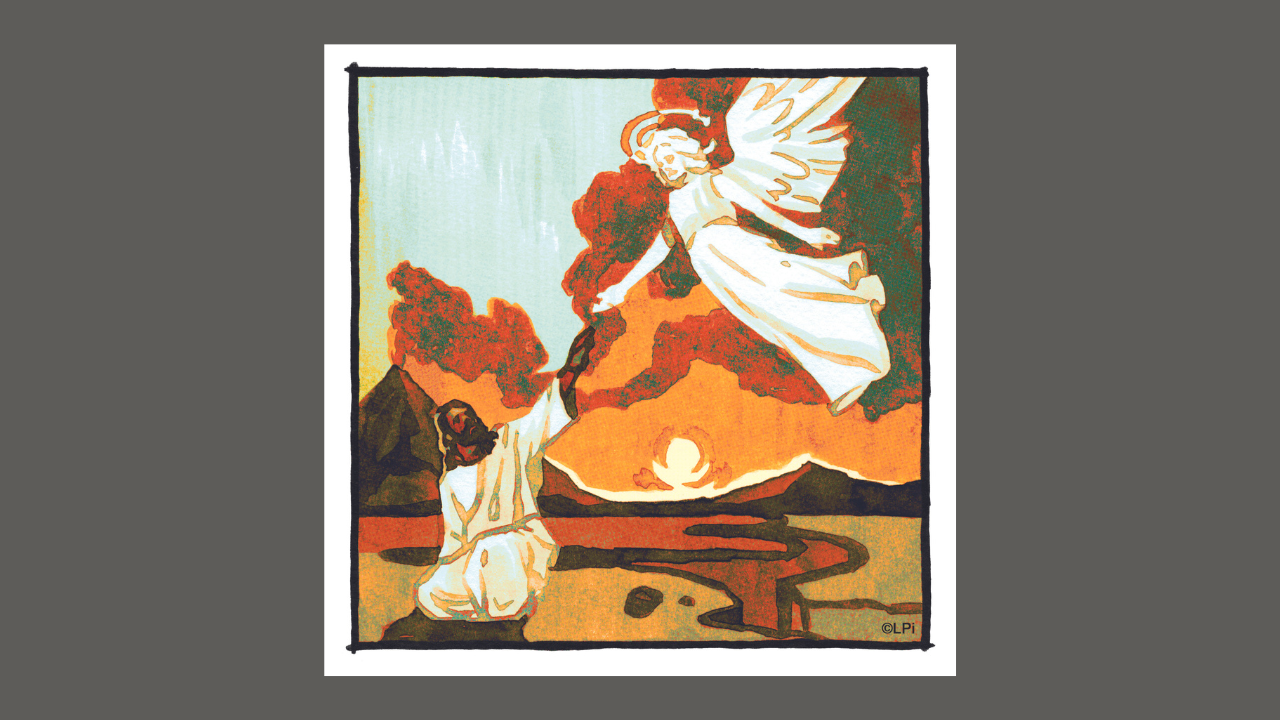
16 Feb, 2024
As we begin this holy season, one of the themes that is presented to us is the call for the renewal of baptismal grace in each one of us. Immediately in the first reading we are given an allusion to something great that is to come: baptism. The story of Noah and the Flood may not seem to be an image that moves us to think of baptism but what did the flood do? The flood washed away the evil that had ruined the world and, following the flood, God chose to renew his creation and bring new life back to the earth. In baptism, God chooses to do the same with us. Through those saving waters, the reign of sin is broken within each of us and we are incorporated into the mystical body of Christ. Just as God made a covenant with Noah following the flood, he also makes a personal covenant with us through baptism. Preceding Jesus’s temptation as recorded by Mark is his account of Jesus’s baptism by John in the Jordan River. At that moment, the voice of the Father is heard acknowledging Jesus for who he is: the Son of God. The same is true for all the baptized. While it does not happen in the same dramatic fashion, God no less claims each of us as his child through baptism. It is in this saving act that we are made heirs of the Kingdom of Heaven. Immediately following Jesus’s baptism, Mark tells us that Jesus is driven into the desert and, surrounded by wild beasts; he is tempted by Satan. Mark presents this time in the desert as a time of testing, where Jesus is isolated and opposed by evil and the powers of the world. At times, we may find the same to be true for us. If we choose to cooperate with the grace given to us through baptism, we will find ourselves naturally in opposition to the powers of the world. At times, we may feel as though we are alone and left in desolation, like Job whom we heard about two Sundays ago. However, Mark also tells us that angels came to minister to Jesus. As with Jesus, so it is with us, the covenant that God has made with us is never broken by him. We are never forsaken or abandoned, even in moments that seem to be the most trying for us. During this Lenten season, the Church invites us to seek the grace of God to renew the baptism that each of us has received. Let us make the most of this sacred time so that we may always remember who we are and whose we are: heirs to the Kingdom of Heaven and sons and daughters of God. We may be tested at times, but we are never forgotten or left alone. Lenten Wisdom From an Ash Wednesday homily given by Pope St. John Paul II: “Repent and believe in the Gospel”. This invitation, which we find at the beginning of Jesus’ preaching, introduces us into the Lenten season, a time to be dedicated in a special way to conversion and renewal, to prayer, to fasting and to works of charity. In recalling the experience of the chosen people, we too set out as it were to retrace the journey that Israel made across the desert to the Promised Land. We too will reach our goal; after these weeks of penance, we will experience the joy of Easter. Our eyes, purified by prayer and penance, will be able to behold with greater clarity the face of the living God, to whom man makes his own pilgrimage on the paths of earthly life. On Retreat Please know that I will be away on retreat this first week of Lent. I will be at the Mary and Joseph Retreat House on the grounds of Mundelein Seminary in the Archdiocese of Chicago. Blessings to you and yours for the week ahead! Father Chris House
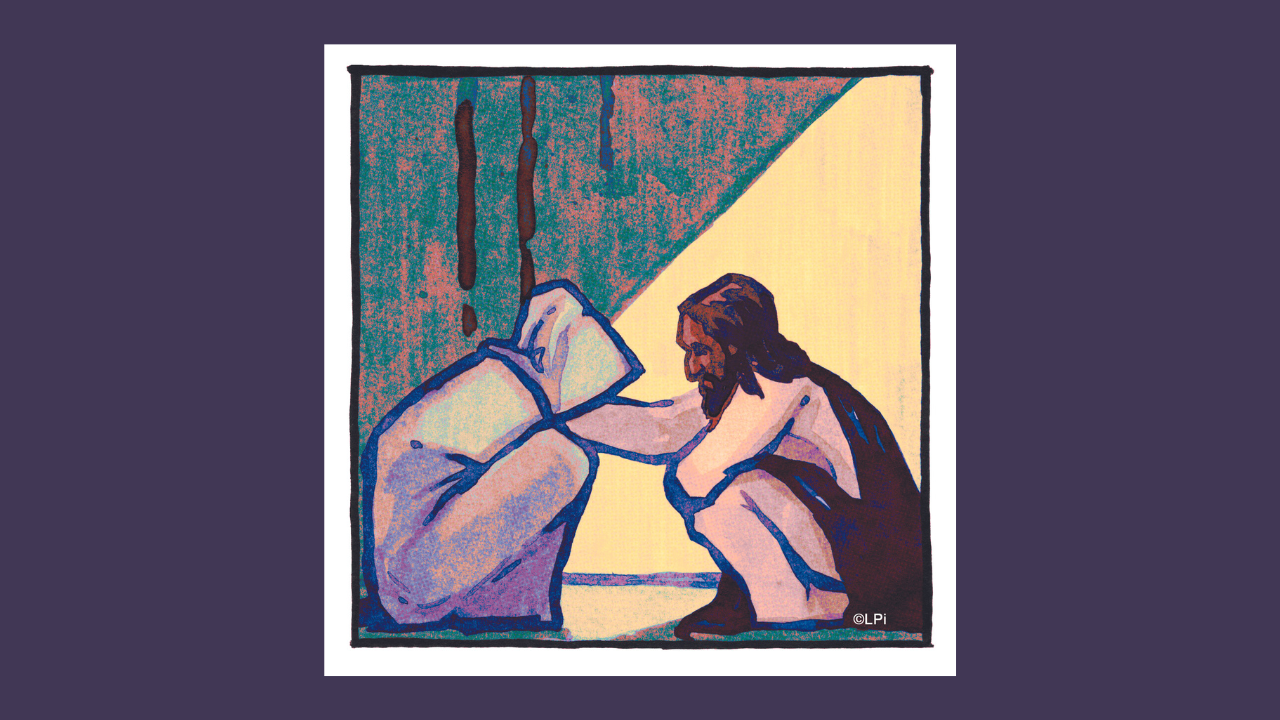
09 Feb, 2024
We do not hear about lepers today. Generally, when the word is used, it is used more as a figure of speech to describe someone who has become an outsider for one reason or another. The term leprosy was a wide-ranging term for any visible skin ailment in ancient times. One form of leprosy in Biblical times was known as nodule leprosy. It would discolor the skin and skin nodules would form in the folds of the face, on the nose, lips, and forehead, ultimately disfiguring the person who was afflicted with it. The disease would also cause ulcers on the body and vocal chords, and eventually even affect the person’s mental state. Another form of leprosy was known as anaesthetic leprosy. This form of the disease would attack a person’s nerves, especially in their hands and feet, eventually causing them to lose fingers, toes, and whole limbs. Besides the intense physical suffering that this disease inflicted on its victims, there was also the pain of the social stigma that came with it. People long ago did not understand the nature of disease, how diseases were contracted, or how they occurred. Disease and illness were seen as punishments from God for sins that a person had committed. For this reason, and also for the contagious aspect of diseases, those who were found to be sick with leprosy were cast out of society. The first reading this Sunday from the Book of Leviticus tells us what was expected of those poor souls who found themselves afflicted. The unjust social stigma and shame that they faced, through no fault of their own, only compounded the suffering that they were already experiencing in their bodies. Leprosy was essentially an undeserved excommunication for which there was no real remedy. Only those who had a passing affliction, which would not have been true leprosy, were able to find themselves “clean” and able to rejoin the community. This Sunday’s Gospel recounts the scene where the Lord Jesus is approached by a leper. The encounter was unthinkable as this man, because of his condition, was forbidden to be around others, let alone approach someone. He asks Jesus to heal him, if Jesus wills to do so; Jesus does. The Gospel tells us that Jesus was moved with pity. Other translations say that he was filled with compassion; however, some scholars say that both of these translations are incorrect, and that the proper translation was that he was filled with anger. Anger? Jesus’s anger would not have been with the man, but rather with the social injustice that further victimized the man, causing him to qualify his request to be healed with “if you wish.” Of course, Jesus wanted to heal the man, to “make him clean,” to bring him from the outside back into the community. Are we willing to do the same for the “lepers” among us? We know all too well of societal sins in the forms of various shades of discrimination. As Christians, it should be second nature for us to be angered by the injustices around us and for us to seek to end them, to bring those on the outside in. Sadly, these sins find their way into the Church’s members as well, and there is no room for these attitudes and behaviors whatsoever. There are also “lepers” around us whom we do not recognize; those who carry shame and guilt for reasons unknown to us; for them, the power of shame and guilt brings about an invisible separation. We must always be ready to be sources of the mercy and compassion of God. Why does Jesus tell people whom he has cured, such as the man in this Sunday’s Gospel, not to tell anyone? He does this because he knows that there is going to be pushback from the powers of the world who do not want to hear and heed his message or to accept the change that Jesus seeks to bring. Jesus knows that this pushback is inevitable, but he wants to be able to preach and minister as freely as possible in the limited time that he has. If we would follow the Lord’s example and seek to bring in those who have been cast out, we too can expect pushback from the powers of the world. These powers do not accept the Gospel today any more than they did 2,000 years ago. So, do what is right and holy and let the world pushback. Seek those who have been pushed out, those who are the modern “lepers.” The world will not like it, but the world’s opinion is ultimately worthless. We do not belong to the world. May we have the grace to model Christ the healer in our daily living, seeking to bind up the wounds of the mystical body of Christ and make it whole. Ash Wednesday This Wednesday, Ash Wednesday, marks the beginning of the holy season of Lent. Masses will be at 7:00AM, 8:30AM (school) and 5:30PM; there will also be a Liturgy of the Word with distribution of ashes at noon. Please also find details in this bulletin about fasting and abstinence guidelines, Lenten prayer/devotional offerings, and alms giving opportunities. Sound System Update The internal chips from the speaker towers have been sent away for repair and will hopefully be back within a few weeks. Blessings to you and yours for the week ahead! Father Chris House
List of Services
Powered by Our Sunday Visitor
